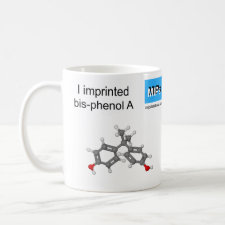
Authors: Xie QJ, Li LZ, Pan JM, Meng MJ, Song ZL, Zhu WJ, Wang B, Yu P
Article Title: Molecularly imprinted β-cyclodextrin/Kaoline particles for the selective recognition and binding of bisphenol A.
Publication date: 2014
Journal: The Canadian Journal of Chemical Engineering
Volume: 92
Issue: (4)
Page numbers: 720-728.
DOI: 10.1002/cjce.21872
Abstract: Molecularly imprinted β-cyclodextrin/Kaoline particles (MIPs) were prepared for recognitive adsorption of bisphenol A (BPA) from aqueous solution. The characterisation of MIPs were achieved by FTIR spectra, SEM micrographs, nitrogen adsorptionGă˘desorption analysis and elemental analysis. The equilibrium data, at various temperatures, were described by the Langmuir, Freundlich and Dubinin-Radushkevich isotherm models. The kinetic properties were successfully investigated by pseudo-first-order model, pseudo-second-order model, intraparticle diffusion equation, initial adsorption rate and half-adsorption time. Based on the comparison of diffusion parameters, including intraparticle diffusion, film diffusion and pore diffusion, we can confirm the process of recognitive binging sites in MIPs. A diffusion-controlled process as the essential adsorption rate-controlling step was proposed. Moreover, intraparticle diffusion increased with BPA concentration while film and pore diffusion decreased. An increase in the temperature was found to increase intraparticle and pore diffusion, and reduce film diffusion. The selectivity of MIPs also demonstrated higher affinity for target BPA over competitive phenolic compounds than that of non-imprinted polymers (NIPs)
Template and target information: bisphenol A, BPA
Author keywords: Surface imprinting technique, Molecularly imprinted particles, bisphenol A, selective recognition, β-cyclodextrin, Kaoline composites



Join the Society for Molecular Imprinting

New items RSS feed
Sign-up for e-mail updates:
Choose between receiving an occasional newsletter or more frequent e-mail alerts.
Click here to go to the sign-up page.
Is your name elemental or peptidic? Enter your name and find out by clicking either of the buttons below!
Other products you may like:
 MIPdatabase
MIPdatabase









